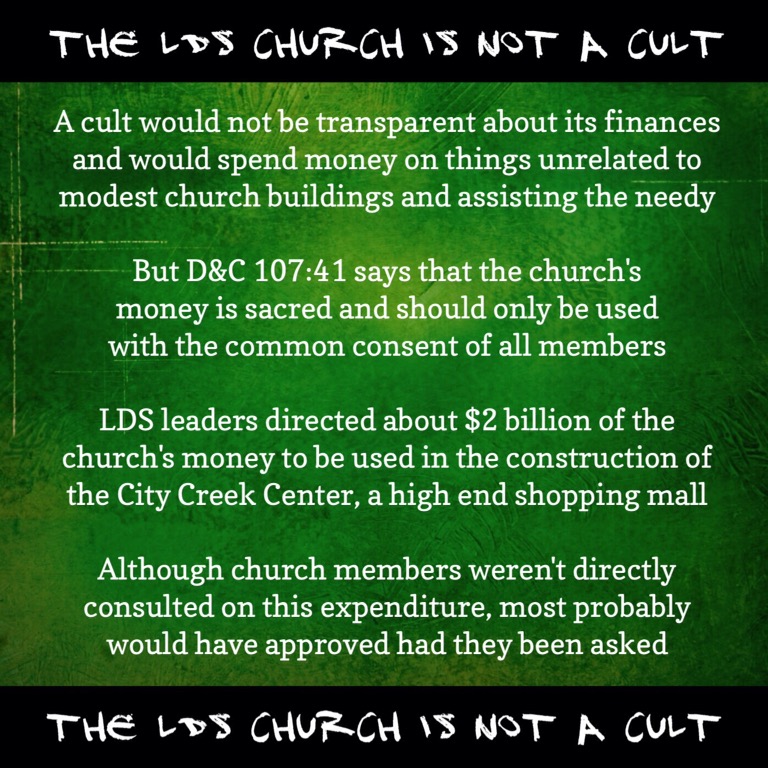
SCRIPTURE: “Train up a child in the way he should go: and when he is old, he will not depart from it.” –Proverbs 22:6. [source]
COMMENTARY: Most religious people dislike the word brainwashing, and they tend to shy away from the word indoctrination as well. But how else can you explain the fact that there are adults who believe in talking snakes, magic fruit, a god who impregnated a mortal, a worldwide flood, a young earth, and eating the flesh and drinking the blood of some guy who’s been promising he’d be back any day now for the past two millennia? If you sit down and think about it, you realize that if brainwashing children were not allowed, religion would be eradicated from the planet within a couple generations. But what do I know? I’m just another apostate.





I know you already know this, but I’ll post anyway if people read this…
You mention brainwashing and indoctrination. Both of those require someone will free will, freely deciding to manipulate someone’s mind (a mind that is immaterial by the way). None of those things exist in an atheistic world. If you acknowledge the ability to manipulate another persons mind (and that people actually have a mind) you are no longer in an atheistic worldview.
You make it sound like brainwashing is bad. Is it? I agree that it is, but in an atheistic world there is no such thing as good and bad, just various human opinion if good and bad are not grounded in anything other than each individual human. If you want to say something is objectively wrong, you are again stepping out of an atheistic worldview.
Please stay intellectually honest rather than picking and choosing various aspects from different world views to make your case.
As for your theological issues, believers have various opinions on each of the areas. Most do not believe in a young earth, literal snake, or literal blood. Those are non-essentials. The only essential is whether or not Christ was raised and accepting it.
Next time you criticize the Mormon worldview, try to do so from your own worldview and be consistent. I would LOVE to see that! I don’t think you can actually do it…
Sigh. Back again with more strawman aguments?
People who are interested in seeking truth attempt to avoid logical fallacies. People who are interested in winning debates, either in their own mind or in the opinion of third party observers, will use whatever tool is available to appear to come out on top in the argument. Which kind of person are you?
A strawman argument is a logical fallacy that, as is the case with all logical fallacies, appears to be compelling but is ultimately worthless for determining truth. Since it appears to be compelling, though, it can be useful if your only intention is to appear to win a debate. A strawman argument is an argument in which you misrepresent another person’s argument, and then proceed to argue against that false representation. No matter how well you trounce the misrepresented argument, you have not addressed the actual argument. Because of this, a strawman argument is not a valid way to approach truth finding.
I never mentioned anything about free will in this post, and I’m happy to treat the arguments of this post in both cases: say either that there is free will, or that there is not, and either way my argument is the same: indoctrinating children before they achieve the ability to reason is one of the biggest reasons that organized religion survives today.
If you want to twist my position into one where you think I am arguing for the absence of free will, you are welcome to do so, but I find the question immaterial and do not care which way it comes out. If it is a compelling reason for you to dismiss atheism, I’m okay with that. But again, it has no bearing on my argument in this post. Let’s pretend that god exists and that he created us and that he gave us all free will. It is still wrong to indoctrinate children into believing unprovable stories about a supernatural being, especially when there are so many possible variations on such a supernatural being and his desires for our lives.
Let’s pretend that there is a god and free will exists and I’m arguing against Christianity while we presume for the sake of argument that Islam is the one true religion. All those who indoctrinate their children into believing in Christianity are doing harm to their children. No free will or lack thereof required. My argument stands.
Furthermore, I do not care which of your ridiculous myths are essential to your religion. I’ll take on your “essential” myth of Jesus Christ being raised from the dead as easily as I’ll take on the myth of talking snakes. In fact, I made a point of specifically including the myth of Jesus returning in his second coming as one of the silly beliefs I argued against in my original post, but I’m happy to admit that the list was not intended to be exhaustive. So let’s not get bogged down in details of essential vs. nonessential myths.
Now, isn’t it just a little bit silly to accuse me of not arguing from my own worldview, while you are engaging in the exact same approach? In other words, I can say to you: stop arguing from the point of view that free will doesn’t exist, because in your worldview it does. I think you’ll agree that it’s silly to posit that we can’t take the viewpoint of another person in order to point out flaws in that person’s reasoning.
But, to amuse you, I will argue against Mormonism from my worldview.
1. The divinity of Jesus is a myth.
2. Any claim of divine direction from Jesus is, therefore, a misrepresentation of reality.
3. Mormonism claims divine direction from Jesus.
4. Mormonism is therefore not what it claims to be.
QED
My point is simple… You argue against God using tools that are only accessible to a theistic worldview. In order to use those tools, atheism would have to be false. You are skitsofrenic. You want to deny God but then turn around and rely on absolutes like truth and right or wrong, free will, or a mind to make your point. Denying God and using the tools from a theistic worldview is what is intellectually dishonest, and the worst part is you do it to yourself. I am so sorry you have such a hard heart towards God and the LDS people.
I know reading is hard. So let me be brief. My arguments on this topic do not rely on an atheistic worldview, and are just as valid if there is a God, so once again you are simply attacking a strawman. Again I would ask you: are you interested in determining truth, or only in winning a debate? Using logical fallacies will not aid in the former, but can useful in the latter, so if that is your intent, by all means continue.
I understand completely. And yes, with God existing that is the only way to argue the way you do. If he doesn’t, the foundation of all your attacks crumble and your Mormon bashing commits intellectual suicide.
So if God exists, then Mormonism is false? But if he doesn’t, then Mormonism is true? Uh huh. Got it.
Almost. Your arguments show transcendence exists. It shows A God exists. It may not be Mormonism, but a God.
If God does not exist, then neither does objective morality or objective right or wrong. I would even consider that a mind would not exist, nor a soul, nor free will.
Which of my arguments shows that a god exists?
All your transcendent arguments. Again, if there is nothing besides individual human opinions and minds, then there is nothing objective or transcendent. That would mean everything is relative.
“All [my] transcendent arguments,” huh? I don’t recall arguing that there was “nothing besides individual human opinions and minds.” I thought we already talked about the strawman logical fallacy. Are you still going with that approach?
You are awesome at avoiding any accountability… Let me ask you then so I do not make any mistakes… What makes a behavior right or wrong?
I take full accountability for everything I say, but not for anything that you incorrectly say that I say. I’m afraid that if you honestly can’t tell right from wrong, you don’t lack religion; you lack empathy. If you need a starting place on learning how to do this, though, please feel free to use google to start your research. I don’t claim to be an expert, but this is likely as good a starting place as any: https://en.wikipedia.org/wiki/Ethics (Wait. That page doesn’t have the word “Bible” anywhere on it, and only mentions “God” once. You probably shouldn’t trust it.)
Just thinking out loud… You mention empathy… Isn’t that An emotion?? Isn’t that immaterial in natures? Yes I agree, but my worldview allows for the immaterial realm of emotion, truth, spirit, love, morality, numbers, empathy, etc.
Anyways… Back to the point…That’s odd, you’re avoiding the accountability again. I am not asking Google or Wikipedia… I am asking you, so I will try again…
What makes something right or wrong?
Whether empathy is immaterial or not has no bearing on my argument. Let’s try to keep on topic, shall we?
If you don’t understand ethics, then I can’t help you understand the difference between right and wrong. Read about it. Seriously. And if you do understand ethics, then nothing I can say will explain it any better to you.
In case that answer is too complex for you, let me answer it this way: if you want to know if something is right or wrong, you can apply the philosophies of ethics to the question. And yes, the word philosophies is plural, because there is more than one way to approach any dilemma, and different people may come to different conclusions.
I am sorry you are STILL avoiding the question.
I asked, how do YOU know the difference between right and wrong? Is it limited to your mind that is the end product of a random, blind, accident that is a reaction from the big bang?
The fact that you fail to understand and/or accept my answer does not mean I did not answer. But again: does this line of discussion have any relevance to the post?
Dear B,
please explain why you think it is not possible to think in terms like truth or right and wrong while assuming that God doesn’t exist.
I see no contradiction here.
A person can judge certain statements to be true or false independently of his or her opinion on God’s existence, why not?
I’d like to understand your way of thinking about these matters.
Thanks.
Hey George,
We can start with right and wrong. What do you ground them in?
I agree with you that people can judge right or wrong without God’s existence, but all it would be is a personal judgement for each individual. You would have your judgement, I would have mind. There would not be an objective, transcendent measure to determine right and wrong.
Thoughts?
Right. Because without God how would we know whether genocide was right or wrong? How would we know whether slavery was right or wrong? How would we know whether animal sacrifice was right or wrong? How would we know whether infant genital mutilation was right or wrong? How would we know whether eating pork was right or wrong? How would we know whether washing our hands after using the restroom and before preparing food was right or wrong? Thank God we have objective, transcendent measures to determine right and wrong through religion.
The funny thing is you are right. If nothing transcends the individual mind, everything is relative.
Thanks, B,
I still see no contradictions.
A person can consider some things to be right and some to be wrong while assuming that God doesn’t exist. Why not?
Point out where you see a contradiction.
The ground for considering what is right and what is wrong can be reasonably chosen in what causes harm or suffering to people, what makes people healthy and happy etc.
What does it have to do with an unrelated question of God’s existence?
Can these questions be settled with observations of the world?
You are saying ” If there is no God than there is no transcendent measure of right and wrong “.
In fact people don’t always agree with each other on the questions of right and wrong.
Even Mormons at certain period in history had a few competing prophets differing from each other on the question whether it is right or wrong for a man to marry multiple wives and broke up into quite a few splinter churches accordingly.
There is no evidence for the existence of transcendental measure of righ and wrong anywhere in the world, not even inside the Mormon community.
That seems to be a piece of evidence against God’s existence, doesn’t it?
Logically speaking, your position seems to be a form of wishful thinking,- ” We want to have a transcendent measure of right and wrong therefore God exists “. The logic of this statement is broken, go ahead and fix it.
Or did I misunderstand you somewhere?
Hey George,
I actually agree with most of what you said. Someone can assume right and wrong without God, but the best it can be is an assumption. Would you agree with that?
You said right and wrong can be assumed by what makes people happy, healthy, etc. I agree with that, but the problem is what makes one person happy is not the same as others. Some people like to work for their things, others are made happy by stealing from you while you are at work. If that makes them happy, then is it ok? You mentioned suffering.. But that assumes that human life has value and suffering should be avoided. What if your suffering makes another group of people happy and healthy by exploiting people… This again comes down to a matter of opinion rooted in each individual human brain.
It seems that without God, everything is relative. Would you agree with that? That is all I am trying to say. We are stardust in a massive universe; to assume life then has value and minimizing suffering is important, would simply be a human construct.
Sorry I left some areas out 🙂
You are exactly right, my view is that in order to have an objective, transcendent right and wrong there must be a God. You stated my view perfectly. I know you don’t agree with it, but I’m glad you comprehend my view.
In other words, if moral laws exist, so must a moral law giver. If there is no moral law giver, then moral laws are a matter of individual opinion. The question is whether or not moral laws actually do exist or not.
You’re right. The LDS church has splintered on plural marriages. Do you think one group is right and the other wrong? Both groups claim to be doing the right thing. The only way we can say that one of the groups is in the right and the other in the wrong is if there is actually an objective right and wrong.
I didn’t know you were still interested in pursuing this line of logic, but as long as we’re here, I’m curious why you didn’t answer my questions. Which of the following are objectively, transcendently right, and which are objectively, transcendently wrong, and how do we poor mortals determine which is which?
1. Genocide
2. Slavery
3. Animal sacrifice
4. Infant genital mutilation
5. Eating pork
6. Washing hands after using restroom / before preparing food
Thanks.
I am waiting on my answer still, that’s why. I’m tired to your dodges from accountability for your view. When pressed, you dodge, and say that you can use it from any view while avoiding the question.
So I too will try again 🙂
How do you know if something is right or wrong?
Actually, since you like to argue outside of your own view, I’ll join the party 🙂
None of them are wrong because morality does not exist and human existence is actually completely meaningless and purposeless. Any other answer assumes that life actually has value to it
Another strawman argument. Cute. Let me know if you decide you want to discuss this topic.
You should play dodgeball, or even better you should try politics. You will say whatever fits your agenda that day to try to make a point, even if there is nothing behind it.
Let me know when you want to own up to a worldview rather than cherry pick from others in order to put people and their beliefs down. It’s impossible to talk to you because you don’t want to take any ownership to a worldview. It’s awfully easy to belittle others when you never have to own up and defend anything.
Strangely enough, when I gave you my worldview, you completely ignored it and just kept arguing your strawman.
I must have missed it. Please explain.
I know it was a long time ago, and there were a lot of words, but they are still there on the page in my very first comment on this post. Try not to exhaust yourself scrolling up that far. And let’s not forget to mention the argument I made on the post itself.
But hey, I’ve done you a favor. I’ve made a new post today that expresses an argument from my viewpoint—and that deals more directly—about the question of the existence of any god. I’m happy to continue an honest discussion (read: not a strawman argument) on either or both of these pages.
It’s s simple question really. Are you atheist, agnostic, deist, etc? I only need a one word reply. I hope that’s not too much to ask and that you are not too prideful to do so.
I’ll close this conversation because with your new post I think it’s fair to say atheist 🙂